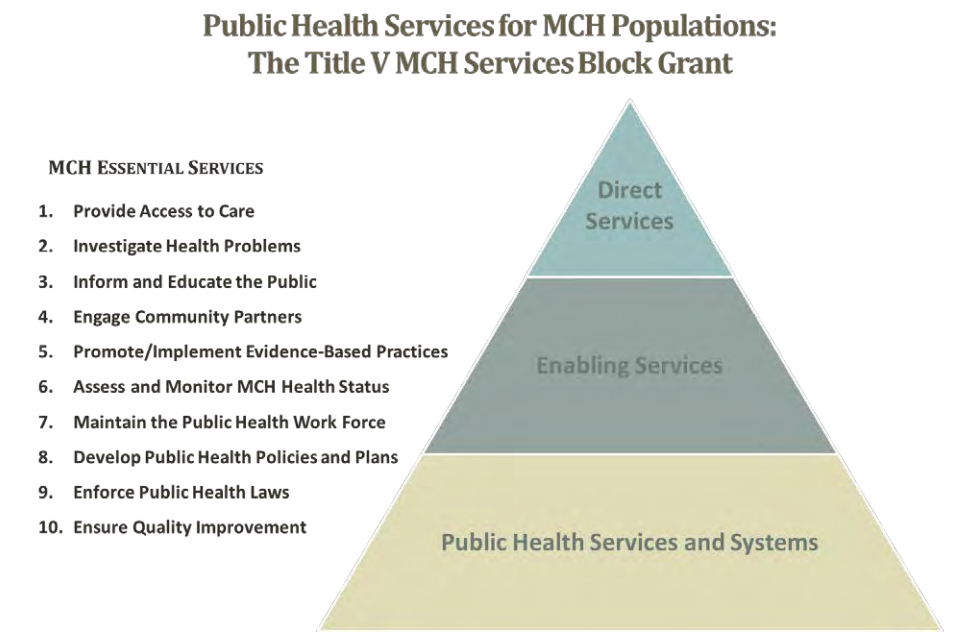Maternal and Child Health - Title V Programs
Title V is part of the Social Security Act of 1935. It is one of the largest, and oldest, federal block grant programs. The federal government pledged support to improve the health of mothers and children throughout the nation. Title V has been amended several times to reflect the increasing national interest in maternal and child health (MCH). In 1981, Title V converted to a block grant program combining seven categorical programs into a single block grant.
These programs were:
- MCH for children with special health care needs (CSHCN),
- Supplemental security income for children with disabilities,
- Lead-based paint poisoning prevention programs,
- Genetic disease programs,
- Sudden infant death syndrome (SIDS) programs,
- Hemophilia treatment centers, and
- Adolescent pregnancy grants.
Several Title V amendments offer states the ability to respond to local MCH needs. Current requirements include planning and reporting activities to support several key MCH measures. Some examples of measures are:
- Breastfeeding rates;
- Injury rates; and
- Percentage of children with special health care needs whose families partner in decision-making and are satisfied with services received.
States can also develop and report on more indicators that support local needs.

The Title V visual framework is a pyramid with three tiers of services and for which systems-building services is the base. Title V is the only federal program providing services at all levels.
The Title V MCH Services Block Grant Program creates a federal / state partnership to meet MCH challenges which include:
- Significantly reducing infant mortality;
- Providing comprehensive care to women before, during, and after pregnancy and childbirth;
- Providing preventive and primary care services for children and adolescents with special health care needs;
- Preventing injury and violence;
- Immunizing all children; and
- Meeting the nutritional and developmental needs of mothers, children, and families.
Visit our program pages to learn more.
The Texas Department of State Health Services does not endorse external links to other websites or documents created by other agencies. These links and documents are informational and may not be accessible to persons with disabilities.